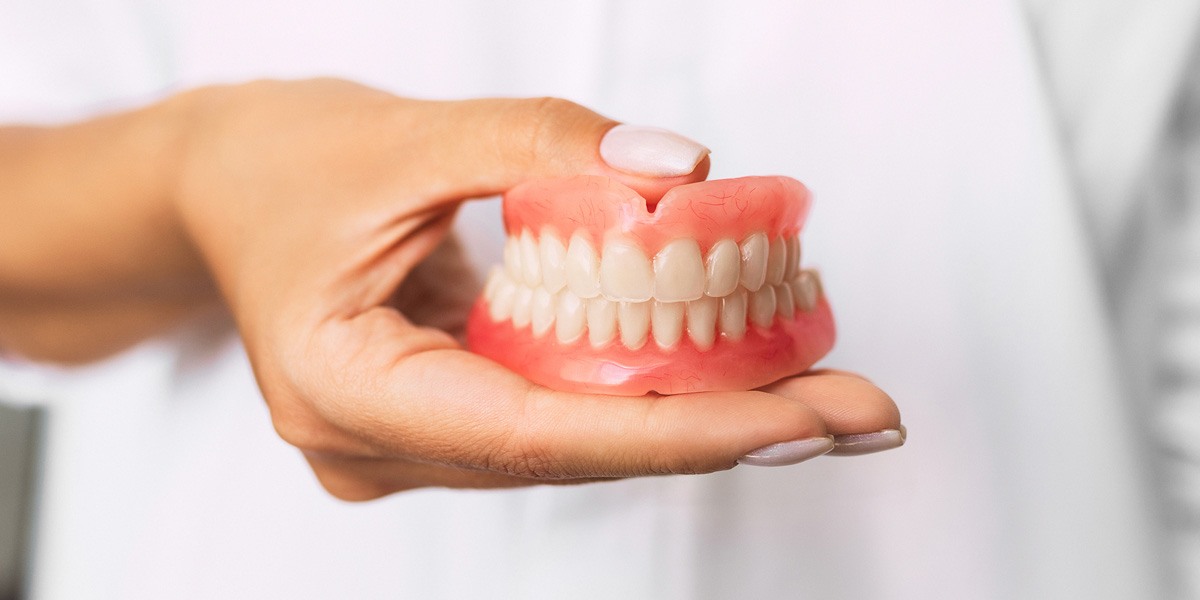Modern dentures are more than simple tooth replacements—they are carefully engineered dental appliances crafted from advanced materials to ensure comfort, durability, and a natural look. If you're considering teeth dentures in Dubai, it's important to understand the different materials used and how they influence the fit, appearance, and functionality of your dentures. This knowledge can help you work with your dentist to select the best option for your oral health needs.
Acrylic Resin Dentures:
Acrylic resin is one of the most commonly used materials for creating both complete and partial dentures. Known for its versatility and affordability, acrylic is widely preferred by dental professionals and patients alike.
Benefits of acrylic resin include:
- Lightweight and comfortable: Easy to adapt to for first-time users
- Cost-effective: One of the most affordable denture materials
- Easy to adjust: Simple to modify if fit issues arise
- Natural-looking appearance: Can be color-matched to gums and teeth
Porcelain Teeth:
Porcelain is frequently used for the artificial teeth portion of dentures due to its natural aesthetics and hardness. Although heavier than acrylic, porcelain provides a more realistic look and feel, making it ideal for visible teeth.
Advantages of porcelain teeth:
- Durable and stain-resistant: Holds up well over time
- Realistic appearance: Closely mimics natural tooth enamel
- Better for chewing: Harder surface allows more efficient biting
- Ideal for full dentures: When not in contact with natural teeth
Flexible Nylon Dentures:
Flexible dentures are made from nylon-based polymers that offer greater comfort and adaptability than traditional rigid materials. These are especially suited for partial dentures and patients with sensitive gums or allergy concerns.
Key features of flexible dentures:
- Soft and pliable: Reduces pressure and irritation on gums
- Metal-free design: Appealing for those with metal sensitivities
- Secure fit: Adapts snugly to natural contours of the mouth
- Aesthetic benefits: Translucent material blends well with gums
Cobalt-Chromium Metal Framework:
Used mainly in partial dentures, cobalt-chromium (Co-Cr) alloy provides a thin yet strong metal base. It is often combined with acrylic for the denture teeth and gum-colored sections, resulting in a highly durable appliance.
Reasons to choose cobalt-chromium framework:
- High strength-to-weight ratio: Thin but extremely strong
- Better oral hygiene: Less coverage of soft tissue allows easier cleaning
- Stability and support: Offers enhanced retention and balance
- Long-lasting performance: Resistant to wear and deformation
Composite Resin:
Composite resins are sometimes used in premium dentures, particularly for the artificial teeth. These materials offer a middle ground between acrylic and porcelain in terms of aesthetics and durability.
Benefits of composite resin dentures:
- Natural texture and color: Customizable for a realistic finish
- Less brittle than porcelain: Lower risk of chipping
- Lightweight: Easier to wear for extended periods
- Suitable for repairs: Can be easily reshaped or patched
Thermoplastic Materials:
Thermoplastics are increasingly being used in modern denture manufacturing due to their flexibility, lightweight nature, and biocompatibility. These materials are especially popular for temporary or interim dentures.
Advantages of thermoplastics:
- Highly adaptable: Can be reheated and reshaped
- Good for temporary solutions: Used during healing phases
- Hypoallergenic: Ideal for patients with sensitivities
- Clear or translucent base: Provides a subtle, low-profile appearance
Titanium in Implant-Supported Dentures:
Implant-supported dentures often incorporate titanium posts or frameworks, especially for those who opt for a more permanent solution. Titanium is biocompatible, meaning it integrates well with bone without causing adverse reactions.
Why titanium is used:
- Osseointegration: Fuses directly with jawbone for stability
- Extremely strong and durable: Withstands daily wear and tear
- Corrosion-resistant: Long lifespan with minimal maintenance
- Foundation for fixed dentures: Supports snap-in or bar-retained models
Denture Base Materials:
The denture base—the part that mimics the gums—can be made from a variety of materials depending on the type of denture and patient needs. The base plays a critical role in fit, comfort, and appearance.
Common base materials include:
- Acrylic polymers: Most common, customizable in shape and color
- Flexible resins: Used in lightweight or partial dentures
- Reinforced acrylics: Strengthened for increased durability
- Silicone liners: Used as soft linings to cushion sensitive gums
Clinics specializing in teeth dentures in Dubai often offer a wide range of base materials, tailored to your comfort level, medical history, and aesthetic goals.
Choosing the Right Material:
Selecting the ideal denture material involves several factors including budget, lifestyle, oral anatomy, and any allergies or sensitivities. A professional evaluation by a prosthodontist or dental specialist will guide you toward the most suitable option.
Things to consider when choosing materials:
- Longevity and durability
- Appearance and aesthetics
- Comfort and flexibility
- Maintenance requirements
- Budget and insurance coverage
Many clinics offering teeth dentures in Dubai now use advanced digital imaging and scanning technology to match materials to each patient’s unique needs, ensuring optimal function and appearance.
Final Thoughts:
Understanding the materials used in modern dentures helps you make more informed decisions about your oral health. From acrylic bases to implant-supported titanium frameworks, each material offers unique advantages that cater to different needs and lifestyles. If you’re exploring options for teeth dentures in Dubai, take the time to discuss material choices with your dentist to ensure you get the right blend of comfort, durability, and aesthetics. With the right guidance, you can enjoy a natural-looking smile that performs well and lasts for years.






Comments